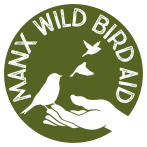Feed the birds
Bird feeders can be a lifeline for wild birds, but did you know they can do more harm than good?
Trichomoniasis (also known as canker in pigeons) is a microscopic parasite that lives in a bird’s mouth and throat and can cause swelling, irritation and sores until the bird is unable to eat or drink and dies. It has always been a problem in pigeon populations because pigeons regurgitate food for their mate and young, and trichomoniasis is spread through the saliva. Birds of prey could also catch it by eating pigeons, but other species didn’t come into close enough contact with pigeons to be at risk. Bird tables changed this - suddenly pigeons with canker were sitting on bird tables next to finches and sparrows, and as the sick pigeons tried to eat but were unable to swallow due to their canker sores, the smaller birds would pick up the dropped bits of food and eat them. It is believed that this is what enabled the trichomonas parasite to jump species. With no natural resistance to the disease, birds died in their millions. The greenfinch population dropped dramatically, and haffinches, goldfinches, House sparrows, siskins and other have also been affected. All this because people wanted to feed the birds in their garden!
You can make your garden into a haven for birds without even having a bird feeder. Plant native flowers, shrubs and trees that will provide a year-round feast for wildlife, or simply allow part of your garden to go wild. Finches will feast on dandelion and thistle seeds, tits will hunt for caterpillars and other insects on the wildflowers, and fruit such as ivy berries, hawthorn berries and Rowan berries will attract blackbirds, thrushes, fieldfares and redwings in the autumn and winter.
You can make your garden into a haven for birds without even having a bird feeder. This has the advantage of benefitting all wildlife and not causing problems such as the disease and rodent overpopulation that bird feeders and tables can. Plant native flowers, shrubs and trees that will provide a year-round feast for wildlife, or simply allow part of your garden to go wild. Finches will feast on dandelion and thistle seeds, tits will hunt for caterpillars and other insects on the wildflowers and nettles, and fruit such as ivy berries, hawthorn berries, blackberries and rowan berries will attract blackbirds, thrushes, fieldfares and redwings in the autumn and winter.
Most commercially available bird seed is farmed, treated with pesticides, protected by “pest” control (which may include the killing of birds who want to eat the seed before it can be harvested!), packaged in plastic and then shipped to its destination - which can be as far afield as Ethiopia or India, in the case of niger seed, or South America and China, in the case of peanuts (3).


